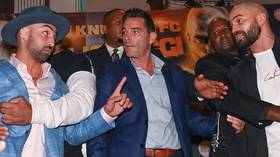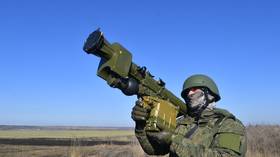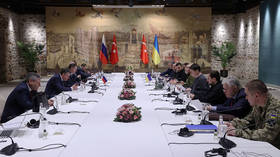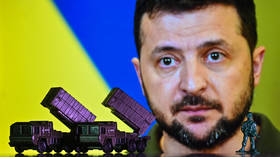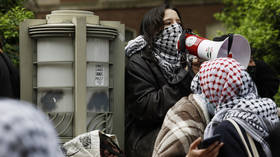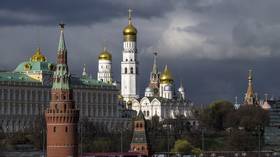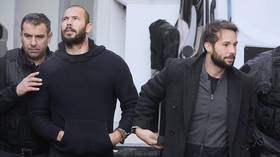Cri-me-a-blues: Sanctimonious sanctions on Russia are damaging the EU, so why renew them?
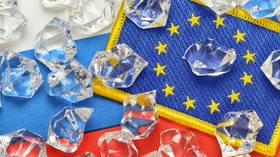
Last week EU leaders extended economic sanctions on Russia in relation to events in Ukraine/Crimea. Russia will no doubt reciprocate. Both parties lose out, so why continue with them?
‘Understand and not judge’ was the philosophy of the legendary Belgian crime writer Georges Simenon and it’s his objectivity and lack of sanctimony which arguably makes his Inspector Maigret novels so refreshing to read in an age when everyone seems so opinionated and keen to virtue-signal.
It’s a pity that those behind the decision to extend some sanctions on Russia for another six months because of “a lack of Minsk Agreements implementation” and others for a further one year on account of Russia’s “annexation” of Crimea, didn’t read Simenon before they made their call.
Instead of applying common sense and doing what is best for European economies, EU leaders are doing the opposite to what Simenon recommended. They are judging and not understanding.
The rationale behind the sanctions is punishment for Russia for ‘annexing’ Crimea. Which brings to mind another wise aphorism, this time from Friedrich Nietzsche: “Mistrust all in whom the impulse to punish is powerful”.
When it comes to the turmoil in Ukraine context is everything. We’re expected to see what’s going on there only in close-up, to zoom-in on Russia’s ‘annexation’ of the Crimea and not see the bigger picture.
It is a simple truth that Crimea would not have been reclaimed by Russia, and there would have been no separatist movement in the east of Ukraine, had there been no ‘regime-change’ operation in 2014 to topple the democratically-elected government of Viktor Yanukovych. The fragile post-Soviet consensus that an independent Ukraine would neither tilt too far to the east to Russia, or to the west, which survived even the ’Orange Revolution’ of 2004-5, was broken. Ukraine would now be a de facto Western colony. Just listen to the leaked tape recording of the US State Department’s Victoria Nuland discussing with US Ambassador Geoffrey Pyatt, who should and shouldn’t be in the new ’democratic’ government, if you still have any doubts.
Also on rt.com 'F**k the EU': Snr US State Dept. official caught in alleged phone chat on UkraineRussia’s use of Sevastopol as the home for its Black Sea fleet was in serious jeopardy and given the fact that hard-core, Russian-hating Ukrainian ultra-nationalists were at the forefront of the regime-change operation, Ukraine’s Russian population had cause for concern too.
Given the events of February 2014, the reclaiming of Crimea by the Russian Federation, which was endorsed overwhelmingly by the Russian-majority people of the province in a referendum, was entirely predictable and understandable.
In fact, it beggars belief that anyone would think the majority of Crimeans would want to stay tied to Kiev, given the political changes that had taken place. This does not necessarily mean that we support what happened, only that we understand it.
Unfortunately the West’s leaders in shaping their response took their cue not from the pipe-smoking, non-judgemental man-of-the-world Inspector Maigret, but from Uriah Heep, the nauseating hand-wringing hypocrite in Charles Dickens' David Copperfield. “Heep is an affront not just because he is evil, but because he’s society’s fault. Our fault. He is the part of us that enjoys flattery, that likes to hear the word ‘yes’ loud and often, and doesn’t mind feeling superior to other people,”writes Sam Jordison in his article on Heep from the Guardian in 2015.
Russia’s ‘annexation’ of Crimea was a “great crime,” declared those who had actually supported far worse and far less justified annexations and invasions by other countries. “It’s an incredible act of aggression, it really is a stunning willful choice by President Putin to invade another country,”raged then-US Secretary of State John Kerry, conveniently forgetting that just over a decade earlier his own country had illegally invaded oil-rich Iraq on the fraudulent grounds that it possessed WMDs.
One million people died following that “incredible act of aggression” yet for some Western virtue-signalers, the relatively bloodless return of Crimea to Russia was a far more heinous action. Have sanctions been imposed on the US and other countries, who invaded Iraq? Perish the thought! But we are supposed to back seemingly everlasting sanctions on Russia.
The costs of these sanctions have been extraordinary. Last week at his Direct Line Q&A session with members of the public in Moscow, President Putin claimed that sanctions and the counter-sanctions Russia had imposed, had cost the EU $240 billion since 2014. Russia itself had lost $50 billion.
Also on rt.com Sanctions cost European economies $240 billion while Russia lost $50 billion – PutinIf we go to Western sources, a report in October 2017 from the Austrian Institute of Economic Research found that Russian sanctions had cost EU countries 30 billion euro. EU exports to Russia in 2013, the year before sanctions were introduced, were worth 120 billion euro, in 2016, they had dropped to just 72 billion.
Talk about cutting off your nose to spite your face.
We all know that Europe has come under great pressure from the US, which does far less trade with Russia, to keep the sanctions in place but shouldn’t European leaders be putting their countries, their businesses and their people first?
As to blaming Russia for a “lack of Minsk agreements implementation,” the sanctions relating to Crimea were introduced before there were any Minsk agreements.
One suspects that goalpost-moving is in operation here by those who are quite happy to see Europe and Russia continuing to take a big financial hit.
Georges Simenon would not be impressed by EU leaders going along with it.
Follow Neil Clark @NeilClark66
Think your friends would be interested? Share this story!
The statements, views and opinions expressed in this column are solely those of the author and do not necessarily represent those of RT.




